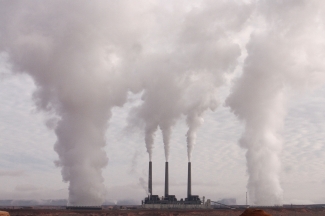FILTER
Displaying 41 - 50 of 77 publications
We compare the effects of price and quantity instruments (an emissions tax and a quota with tradable permits) on the incentive to innovate to reduce the cost of an emission-free technology. We assume…
| Peer Reviewed | IndiaAbstract This paper examines the impact of climate shocks, measured as temperature and precipitation variability, on real monthly per capita consumption expenditure of Indian households over the 1988…
| Peer Reviewed | IndiaPolicy makers often express concern about the impact of carbon taxes on employment and GDP. Focusing on European countries that have implemented carbon taxes over the past 30 years, we estimate the…
| EfD Discussion Paper |In this paper we discuss the choice of taxation or regulation of environmental externalities. The subject might appear to be a well-trodden path, but we believe we have a new angle on this well…
| Peer Reviewed | Sweden, Global HubIn this policy brief, we offer an introduction to the family of policy instruments known as “flexible performance standards.” We describe and examine the attributes of performance standards that…
| Policy Brief | Sweden, Global Hub2015 was a special year. During a few months the political stars aligned and made it possible for the international community to agree on the Agenda 2030 for Sustainable Development and the Paris…
| Peer Reviewed | India, Colombia, China, Vietnam, Sweden, Central America and Mexico, Global HubThis paper develops a new perspective on stranded assets in climate policy using a partial equilibrium model of the energy sector. Political-economy related aspects are considered in the government's…
| Peer Reviewed |China and the United States are the two largest emitters of greenhouse gases, making them pivotal players in global climate negotiations. Within the coming decade, however, India is set to become the…
| Peer Reviewed | SwedenEnergy subsidies cost Ecuador 7% of its public budget, or two thirds of the fiscal deficit. Removing these subsidies would yield local economic and environmental benefits and help implement climate…
| Peer Reviewed |
